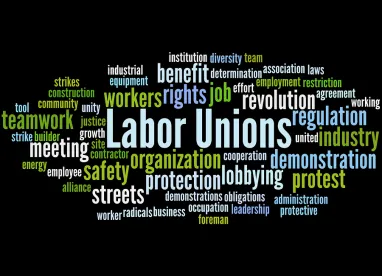Information requests in the realm of labor relations are simple in theory but can be complicated in practice. We have seen how the topics of information sought by a union can cause skirmishes, sometimes deliberately so. We also have seen that it almost never is a good idea for a party to just deny a request for relevant information on the grounds of “confidentiality” or privacy concerns without first trying to reach an accommodation.
Many times, the reasons cited for a particular change become the battle ground with the union testing the rationale by a well placed information request.
This was the case in Stericycle, Inc., 367 NLRB No. 106 (March 11, 2019). There, the employer is in the medical waste disposal business. While many of its employees are non-union, it does have approximately 150 union represented employees working in two facilities. The parties have a long-standing collective bargaining relationship, which resulted in successful negotiation of a new collective bargaining agreement.
After Bargaining Concludes, Employer Gives Notice That It Is Implementing Two New Policies, Citing Federal Law and Customer Requirements
Ratification was achieved on or about June 26, 2016. Three days after the union notified the employer that the employees had ratified the new collective bargaining agreement, the employer sent the union a notice that it intended to implement two new policies, a “Code of Business Conduct and Ethics” and an “Anticorruption Policy” as of June 1. The union immediately objected to the implementation of the policies, alleging bad faith in that the employer had not raised these issues during bargaining.
The employer responded that it had not unilaterally implemented the policies and that it merely had sent the notice to give the union an opportunity to bargain about them (this despite the fact the employer’s letter said it was going to implement the policies as of a date in the past). The employer’s letter stated the policies “were not only a requirement under Federal Law as it relates to publicly traded companies, and when undertaking government work, but it is also a contractual requirement of the customers we serve.”
Union Continues To Press For Bargaining, Ultimately Asks For Information
The union continued in its quest to bargain over the policies. In correspondence, the employer responded that if the union continued to resist implantation of the policies, the employer would advise customers of the union’s refusal and “this may have an impact on our ability to continue to service certain customers.” The employer’s letter stated it would discuss the “effects” of any such impact on the bargaining with the union.
The union requested information related to the reasons cited by the employer and the new policies. The union requested a list of all customers “including name, frequency of pick up and total volume in years 2014, 2015 and 2016” served by the bargaining unit and communications between the employer and the customers about the issues related to the new policies. The request also sought the “federal, state or local government mandates” concerning the policies.
The employer responded that it was rescinding the policies obviating the need to bargain or furnish information.
The union continued to press the matter citing the employer’s statements about legal mandate, customer requirements, and the potential loss of business to the bargaining unit. The employer continued to refuse to provide information.
The union filed charges.
ALJ Finds Section 8(a)(5) Violation Over Employer’s Refusal To Provide Information
After trial, the Administrative Law Judge had little problem finding that the information requested was relevant to bargaining, including the information about customers. To this, the judge stated in his decision:
Even if I did not find the [customer] information presumptively relevant, I find that the Union nevertheless has clearly established its relevance. [The union representative] credibly testified that the information requests, though initially prompted by Respondent’s announcement that it had implemented the two new polices, were not limited to responding to those policies, but rather, were intended to obtain important information related to [the employer’s] assertions that the absence of those policies could lead to loss of work at covered facilities.
Finding relevance to the information, the ALJ held that the employer’s failure to turn over the information constituted a violation of Section 8(a)(5) of the Act.
NLRB Agrees
The NLRB adopted the ALJ decision. Two members (Chairman Ring and Member Emanuel) noted that “where a party clearly and unequivocally rescinds a bargaining proposal affecting the bargaining unit, a request for information regarding the proposal likely would be rendered moot, although this is not the case here because [the employer] continued to maintain that the absence of the policies could affect its ability to retain certain customers….”
Takeaways
This is an interesting case because it shows how the reasons given for not providing relevant information can come back to haunt the party asserting them.
Asserting a government mandate usually does not obviate the need to bargain if there is any discretion over how the mandate is to be implemented. For example, a statutory raise to the minimum wage probably does not have any discretion: it must be implemented by a date certain. There would be no obligation to bargain over such a government requirement. But, most other governmental mandates are not so clearcut, and any discretion that exists as to their implementation must be bargained.
We already know that simply denying a request for relevant information is likely to result in the NLRB easily finding a violation of the Act. This case demonstrates how the reasons cited by the party denying the request can result in the obligation to supply information living well beyond the life of the proposed change.
Finally, bargaining over a successor contract, reaching agreement, and then rolling out a change to a term or condition of employment shortly thereafter is going to raise eyebrows of the union, if not its suspicions.



 />i
/>i

